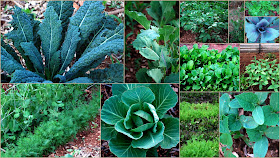Preparing Your Vegetable Garden
Whether it's a garden-fresh tomato on a sandwich or corn on the cob direct from the garden to the stove, you know it's true: The tastiest vegetables come from the home garden. Much enjoyment comes from producing your own crisp vegetables, and it's an activity where everyone in the family can contribute -- even the very young.
The best gardens come from careful planning. Winter is a good time to plan your garden. Few things are more enjoyable on a cold winter evening than thumbing through seed catalogs while awaiting spring's arrival. But whether you plan to plant a large garden or just a few containers of vegetables on the patio, gardening is more than just planting seeds. There are many elements to consider for a successful harvest.
Assessing Your Climate for Starting a Vegetable Garden
Your local climate will dictate which vegetable plants you can successfully grow in your garden, as well as when to plant them. Very hardy vegetable plants will do well in cooler climates, but tender plants must be grown in warm weather only -- frost will damage or destroy these delicate plants. Familiarize yourself with your local first and last frost average dates before you choose which vegetables to plant in your garden.
When you're getting started with your vegetable garden, your first two considerations are what vegetables to plant and where to plant them. A wide variety of vegetables is available for gardeners to choose from, and there are multiple types of each vegetable to suit different tastes and climates. Be sure to avoid the shade of large trees, shrubs, and buildings when selecting a spot for your garden plot.
Designing a Vegetable Garden
Plotting out your garden on paper before planting will help you visualize your space and use it effectively and efficiently. You can use graph paper to make a scale map of your garden and decide on a layout for your vegetables.
Vegetable Garden Soil
Vegetable garden soil should ideally be a mix of air and solids, including clay, silt, and loam. If the mix isn't just right, or if your soil is lacking in nutrients, you'll want to add fertilizers and organic matter to your garden soil. A garden soil test report can help you determine your soil's needs.
Compost piles provide excellent nutrients for your garden soil, and they give you a place to discard your kitchen waste. Start your compost pile with a base material such as leaves, grass clippings, or sawdust; add your organic garden and kitchen waste, and let the magic of the compost pile take over.
courtesy of How Stuff Works
May we also recommend:
A Way to Garden
P. Allen Smith Garden Home
John Dromgoole's Natural Gardener
Austin Urban Gardens
May we also recommend:
A Way to Garden
P. Allen Smith Garden Home
John Dromgoole's Natural Gardener
Austin Urban Gardens







No comments:
Post a Comment
Thank you for visiting Notes from Maggie's Farm. I'd love to hear your thoughts!